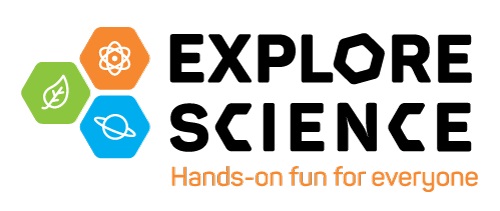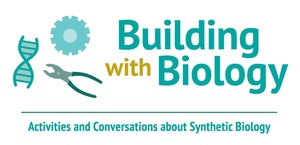INSIDE THIS ISSUE
- Community News: Explore Space: Earth & Space physical toolkits have now been delivered!, Building with Biology highlights public engagement activities about synthetic biology at AAAS 2017 Conference, Celebrating NanoDays 2017: March 5 - April 2
- Upcoming Events & Opportunities: Upcoming NISE Network online workshops, The Association of Children's Museums (ACM) Interactivity 2017
- Partner Highlights: Building with Biology at the Joseph Moore Museum of Natural History at Earlham College in Richmond, Indiana; Zoom into nano: Bringing nano to a new audience in Towson, Maryland
- Featured on the Website: NISE Network Impacts: Report to Partners, Leading and Managing the NISE Network Guide, Explore Science: Earth & Space toolkit training and content videos
- Science in the News: What is gene editing and how does it work?; NASA telescope reveals largest batch of Earth-size, habitable-zone planets around single star; NASA's Night Sky Network-What's up for March 2017; Slow-release nitrogen fertilizer could increase crop yield
- STEM Throughout the Year: NISE Net's ideas for incorporating current science, engineering, and technology into holidays, seasons, annual events, and special events
COMMUNITY NEWS
Explore Science: Earth & Space physical toolkits have now been delivered!
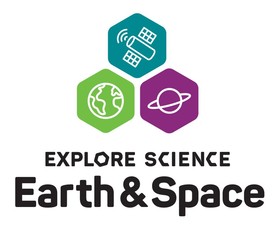 As you begin your preparations for your Explore Science: Earth & Space events this spring, we encourage you to go through each activity box sooner rather than later to make sure all materials and resources are in good shape. The facilitator guide in each activity box lists the materials for that activity, as well the source for those materials. Continue reading the blog post for more information about your Explore Science: Earth & Space physical toolkit.
As you begin your preparations for your Explore Science: Earth & Space events this spring, we encourage you to go through each activity box sooner rather than later to make sure all materials and resources are in good shape. The facilitator guide in each activity box lists the materials for that activity, as well the source for those materials. Continue reading the blog post for more information about your Explore Science: Earth & Space physical toolkit.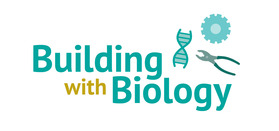 The Building with Biology project’s partners successfully completed over 170 Building with Biology events and forums across the U.S. and Puerto Rico throughout the summer of 2016, and the project team was eager to share our experiences, lessons learned, and preliminary results at the recent American Association for the Advancement of Science (AAAS) 2017 Conference held in Boston, Massachusetts. Read the full blog post to learn about project activities at AAAS including conference sessions, a networking reception for attendees interested in learning more about public engagement with science, and final project meeting.
The Building with Biology project’s partners successfully completed over 170 Building with Biology events and forums across the U.S. and Puerto Rico throughout the summer of 2016, and the project team was eager to share our experiences, lessons learned, and preliminary results at the recent American Association for the Advancement of Science (AAAS) 2017 Conference held in Boston, Massachusetts. Read the full blog post to learn about project activities at AAAS including conference sessions, a networking reception for attendees interested in learning more about public engagement with science, and final project meeting.
- NanoDays promotional video invites learners of all ages to "come see what's so big about the super small!"
- NanoDays Collection Book is a compendium of all NanoDays activities and resources
- DIY Nano Book is a full collection of do-it-yourself science activities that investigate the nanoscale
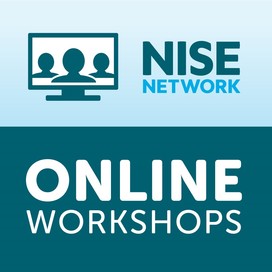
The NISE Network runs a series of free online workshops to increase the number of professional development opportunities available to our partners, and to create more channels for partners to share their work and learn from each other directly. View full details for upcoming online workshops at http://www.nisenet.org/events/online-workshop.
The Science Behind the Earth & Space Toolkit: Astrobiology - Searching for Life
Tuesday, March 14, 2017; 2-3 PM Eastern - Sign up now
This online presentation and discussion will cover the science behind three of the 2017 Explore Science: Earth & Space toolkit activities - Ice Orbs, Imagining Life, and Pocket Solar System. After a brief overview of each activity and its materials, our guest presenter, an astrophysicist and science educator, will lead a discussion about astrobiology and how this exciting field of science encompasses the search for life in the universe, planets around other stars, extremophiles, and future robotic and manned missions into space.
The Science Behind the Explore & Space Toolkit: The Changing Earth
Tuesday, March 28, 2017; 2-3 PM Eastern - Sign up now
This online presentation and discussion will cover the science behind three of the 2017 Explore Science: Earth & Space toolkit activities - Rising Seas, Investigating Clouds, and Orbiting Objects. After a brief overview of each activity and its resources, our guest presenter, a space scientist and science educator, will facilitate learning more about NASA's contributions to discovering the primary cause of our rising seas, understanding cloud distribution and formation, and measuring Earth's gravity.
Working through Difficult Concepts in the Explore Science: Earth and Space Toolkit
Tuesday, April 18, 2017; 2-3 PM Eastern - Sign up now
In this online workshop, learn how to identify common patterns of thinking, including misconceptions, preconceived notions and vernacular issues as learners build their ideas around Earth and space science concepts and strategies to best address them. We will also discuss how to use the NISE Net’s NASA Wavelength lists to explore more resources to support building on facets of understanding while interacting with visitors.
Did you miss a recent NISE Network online workshop? All online workshops are recorded and archived online along with their resources [view online workshop archive].
- Engaging All Learners: Partnerships and Programs to Reach Diverse Audiences (Wednesday, May 3)
- The 2017 Eclipse: Tools for Engaging Young Scientists (Thursday, May 4)
- Best Program Ever! Tools and Techniques to Create Great Programs (Friday, May 5)
Building with Biology at the Joseph Moore Museum of Natural History at Earlham College in Richmond, Indiana
Catch me at the 'Public Engagement with Science' reception. #buildingwithbiology #synbio #AAASmtg
Jayatri Das from Philadelphia, PA
@nisenet nano activities spotted at #AAASmtg Family Science Days, courtesy of our friends at @DiscoveryActon!
Dietram A. Scheufele from University of Wisconsin, Madison
@nisenet just got a shout-out at #aaasmtg #scicomm session for making emerging science relevant to people's lives
Dennis Cloughetry from University of Vermont in Burlington, VT
Congrats @nisenet! Proud to have been your partner for over a decade on #STEMeducation. https://vimeo.com/201702121 @ECHOvt @uvmphysics @UVMcas
- Explore NISE Net's Building with Biology's hands-on activities that discuss synthetic biology technologies and encourage participants to design solutions to real-world problems.
- Building with Biology forums provide an opportunity to engage in thoughtful conversations about important issues regarding the potential societal and ethical implications of synthetic biology, including gene-editing.
- Looking for ways to connect NASA's exciting new discovery with your visitors, check out the following NISE Net hands-on activities: Exploring the Universe: Imagining Life, Exploring the Universe: Ice Orbs, and Exploring the Universe: Orbiting Objects
STEM THROUGHOUT THE YEAR
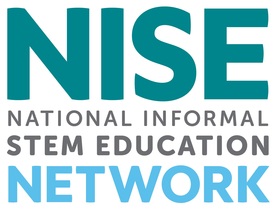
- Women's History Month (March)
- Groundwater Awareness Week (March 5 - 11)
- Brain Awareness Week (March 13 - 19)
- Pi Day (March 14)
- National Learn about Butterflies Day (March 14)
- World Water Day (March 22)
- Earth Hour (March 25)
- Meteor showers, lunar eclipses, full moons, planetary events, and more www.nisenet.org/seasons
- Solar eclipse (August 21) - start planning your solar eclipse event now
- Solar eclipse planning mini-kit
Do you have something you would like to submit for inclusion in the NISE Network monthly e-newsletter? Please send your announcements, articles, or community opportunities to Kayla Berry at [email protected].

